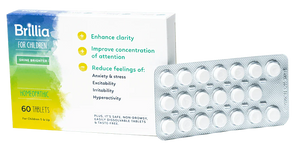Many children and teens suffer from anxiety, but they may not realize it or may want to hide it from their parents. If your child or teen is hiding their anxiety or how they feel, there are several signs to watch for. In seeing the signs, a parent can better help their children manage their feelings. Following are several signs that might point to a child suffering from—or hiding their—anxiety.
They Socially Withdraw Themselves
When a child is suffering from anxiety, they may choose to withdraw from family or friends. They will likely isolate themselves, choosing to play a game or other activity alone while shutting off from the world. If your child begins retreating to their bedroom every day, preferring to be alone than around family or with friends, there is likely an issue. Recognizing this behavior can help you investigate and understand the source of the problem and find solutions to help your child work through it.
They’re More Emotional Than Usual
A child suffering from anxiety may begin exhibiting signs of stress and could try to hide it, but it will become apparent if your child suddenly gets angry or sad for no obvious reason. Anxiety is difficult to manage, and children, in particular, may not understand that they’re suffering from anxiety or what they can do about it. As a result, other emotional signs will start emerging out of the frustration of anxiety.
They’re Starting to Exhibit Irritable Behavior
A typically well-behaved child suffering from anxiety may exhibit unusual behaviors such as showing disrespect to parents or elders, breaking established rules or engaging in other bad behaviors that the child would not normally do. This can be a sign of frustration when a child is dealing with anxiety and isn’t sure of the appropriate way to handle or explain it.
They Have a Change in Appetite or Activity
Sudden changes in appetite, whether it’s a lack of appetite or overeating, can be a sign of a child suffering from anxiety. Ensuring your child gets proper nutrition (one of Brillia’s five pillars) provides a wide range of physical and psychological benefits and can help reduce your child’s anxiety.
Another sign could be a very active child suddenly having no energy or desire for physical activity. This is not laziness but rather a consequence of anxiety making the child feel withdrawn and having no drive to do anything effortful.
They’re Having Trouble Sleeping
Changes in sleep pattern, frequently waking, refusing to sleep, or wanting to sleep in a parent’s bed could be signs that your child is hiding or suffering from anxiety but does not understand how to express it. When a child is not emotionally settled, they may have difficulty sleeping or refuse to sleep at all. Finding the cause of the anxiety will be beneficial because a good night of sleep is critical for children and teens. A lack of good sleep will aggravate anxiety or attention problems and cause further issues.
Their Grades Are Dropping
Trouble at school, whether behaviorally, socially or academically can be a sign of anxiety or attention issues. Anxiety and other issues can cause stress, feelings of being overwhelmed or a major drop in grades because schoolwork is being ignored or done poorly. Monitor a child’s progress in school and how they behave with teachers and peers.
A child with anxiety may try to hide signs of anxiety because they may not understand how they feel or how to explain it. This is not the child’s fault, and fortunately, a variety of signs can be picked up on if you know what to look for. It is crucial to try to understand the source(s) of anxiety so that you can help your child overcome it and find solutions to ease their mind and conquer feelings of anxiety in a healthy way. Starting on a program, like Brillia, can be a great way to take action without worrying about the harmful side effects of prescription medications that are quickly and frequently prescribed. You can start simply by making lifestyle changes in the program to help your child begin to control their anxiety symptoms.






